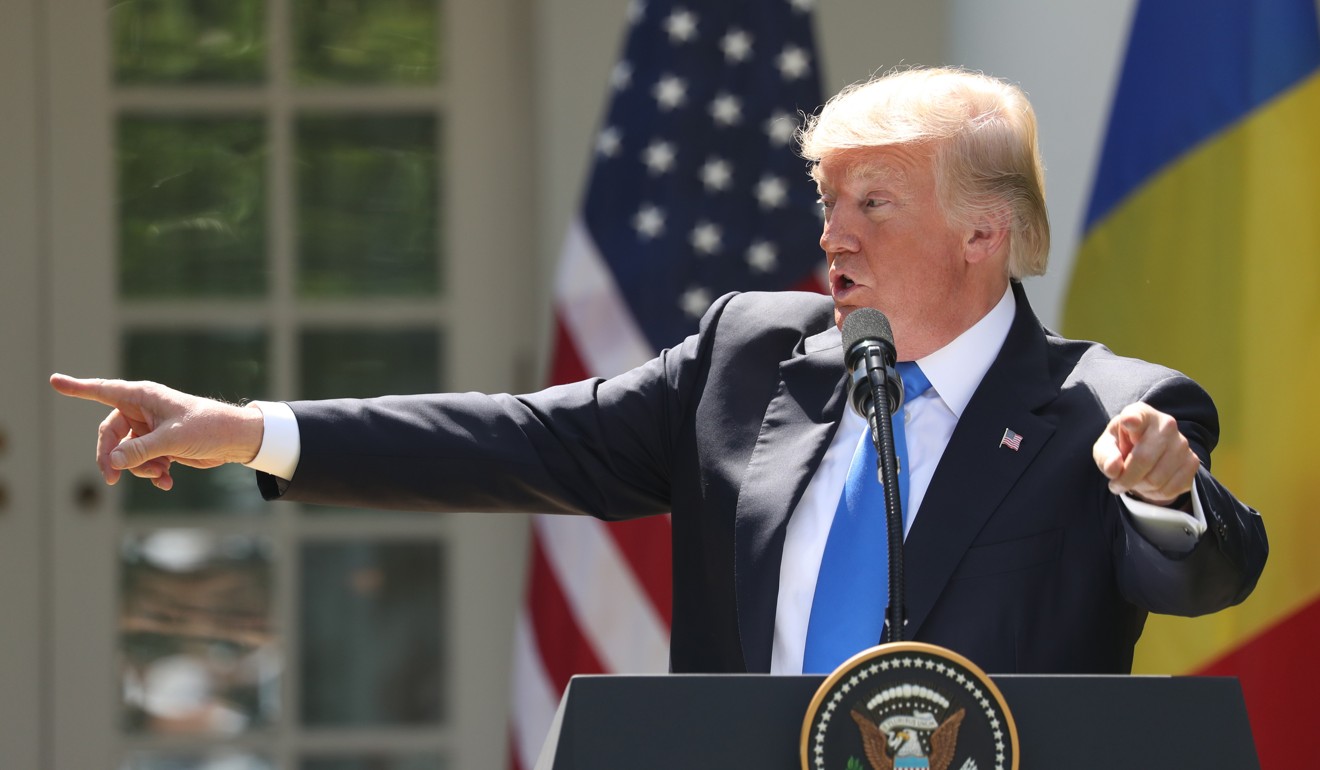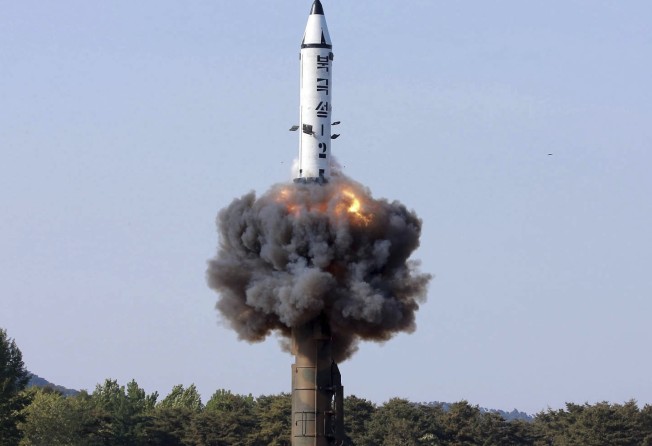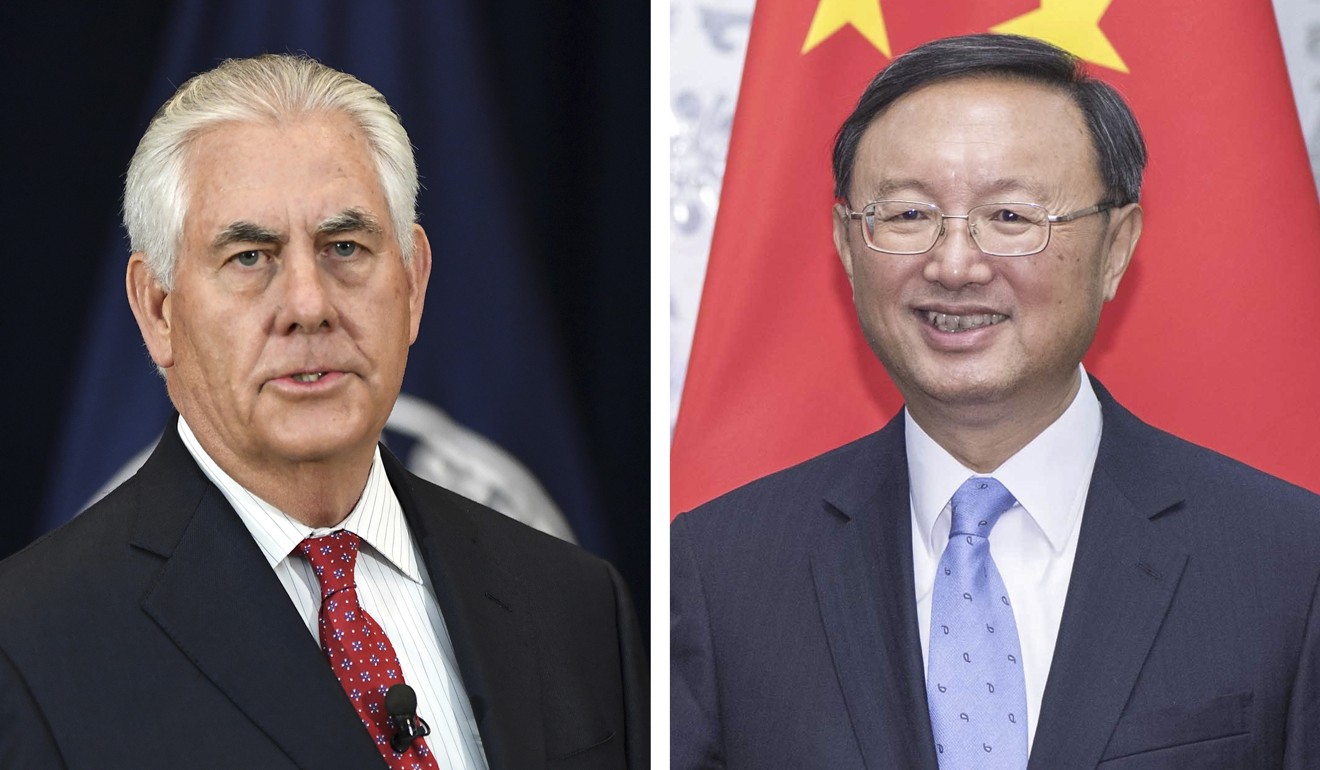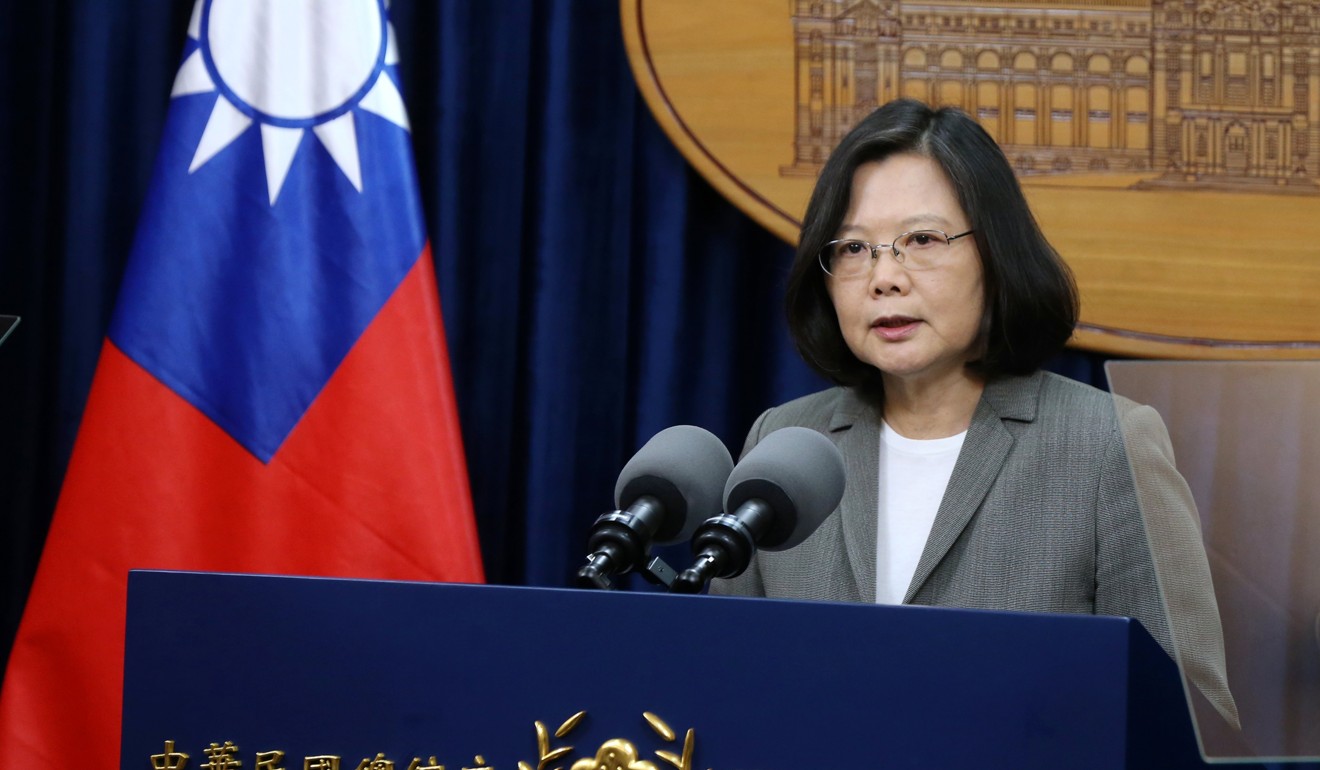
North Korea looms over talks between China and US
Security concerns set to dominate meeting being held on Wednesday, but neither side appears ready to offer meaningful concessions, experts say

China’s willingness to help rein in North Korea’s nuclear threat poses the biggest source of uncertainty in ties with the United States, as heightened tensions on the Korean peninsula look set to dominate a bilateral security gathering in Washington on Wednesday.
Alongside North Korea’s nuclear brinkmanship, top officials from both sides will also attempt to bridge widening gaps over divergent security interests, which pundits believe are the “weakest link” of Sino-US relations that could lead to conflict if not properly managed.
But the inaugural US-China Diplomatic and Security Dialogue, jointly initiated by US President Donald Trump and his Chinese counterpart Xi Jinping, is unlikely to see any breakthroughs. The embattled US leader has not yet put a coherent China policy in place five months into his term and his Asia team is not fully staffed up, analysts say.
While the meeting was likely to touch on a range of bilateral and international issues, including the South China Sea disputes and cross-strait relations, the focus would no doubt be North Korea, Stephen Orlins, president of the National Committee on US-China Relations, said.

“The biggest risk for the relationship is potential disappointment [for Trump] over North Korea,” Orlins said. “President Trump has decided the litmus test for US-China relations is if China can rein in North Korea. However, history suggests that China cannot control North Korea and Trump may be disappointed. Nonetheless, lately I see signs. I see the Chinese are doing stuff [on North Korea], very quietly, but they are doing things and maybe we can see a better result than we have seen historically.”
Gal Luft, co-director of the Washington-based Institute for the Analysis of Global Security, agreed. “Both sides will measure each other’s intentions,” Luft said. “The US will try to assess how committed China really is to cracking down on Pyongyang and whether China’s words can be matched by concrete – and biting – action. The Chinese side for its part will want to assess how far the US is really willing to go on the issue and whether a military option is seriously considered.”
Diplomatic observers believe Trump will continue to adopt a largely transactional approach and seek to pile pressure on Beijing. “Trump’s focus on Asia seems to be one of getting North Korea sorted first, and getting Xi to do it for him,” Steve Tsang, director of the SOAS China Institute in London, said.

“Trump went on a Twitter tirade against China over North Korea more than once and openly said he saw China’s cooperation on the issue closely linked to trade rifts, Taiwan and other issues,” Liu said.
Liu noted that just days ahead of the meeting, US Secretary of State Rex Tillerson and US Secretary of Defence Jim Mattis, who will co-chair the meeting with State Councillor Yang Jiechi and General Fang Fenghui, chief of the People’s Liberation Army’s Joint Staff Department, had ratcheted up rhetoric against China.
During congressional hearings last week, Tillerson raised the question of whether Washington’s long-standing adherence to the one-China policy was sustainable for the next 50 years.
“Trump’s unpredictability and unconventional thinking on sensitive issues, such as threats to upend Washington’s decades-old policies on Taiwan, have actually given Beijing a hard time,” Liu said.

The fact both sides were willing to dedicate a separate session on security concerns showed the US-China relationship had matured, pundits said. “Splitting the erstwhile Strategic and Economic Dialogue [under the Obama administration] into four distinct pillars tells me that the two sides would prefer to compartmentalise the relations and de-link the strategic and security issues from the economic and cultural issues,” Luft said.
Tsang said the US side was apparently not fully prepared to engage in serious talks as “the US side has not as yet an Asia team in place and Trump has not put in place a China strategy”.